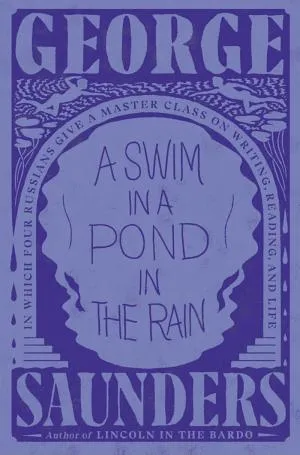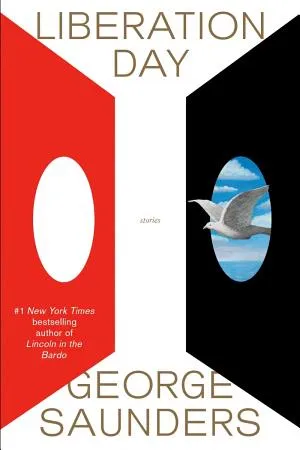
Many young writers start out with the idea that a story is a place to express their views—to tell the world what they believe. That is, they understand the story as a delivery system for their ideas. I know I felt that way. A story was where I got to set the world straight and achieve glory via the sheer originality of my advanced moral positions.
But, as a technical matter, fiction doesn’t support polemic very well. Because the writer invents all the elements, a story isn’t really in a position to “prove” anything. (If I make a dollhouse out of ice cream and put it in the sun, it doesn’t prove the notion “Houses melt.“)
I like what I like, and you like what you like, and art is the place where liking what we like, over and over, is not only allowed but is the essential skill. How emphatically can you like what you like? How long are you willing to work on something, to ensure that every bit of it gets infused with some trace of your radical preference?
The choosing, the choosing, that’s all we’ve got.
A well-written bit of prose is like a beautifully hand-painted kite, lying there on the grass. It’s nice. We admire it. Causality is the wind that then comes along and lifts it up. The kite is then a beautiful thing made even more beautiful by the fact that it’s doing what it was made to do.
The preferred, most efficient, highest-order form of energy transfer (the premier way for a scene to advance the story in a non-trivial way) is for a beat to cause the next beat, especially if that next beat is felt as essential, i.e., as an escalation: a meaningful alteration in the terms of the story.
In the first pulse of a story, the writer is like a juggler, throwing bowling pins into the air. The rest of the story is the catching of those pins. At any point in the story, certain pins are up there and we can feel them. We’d better feel them. If not, the story has nothing out of which to make its meaning.
We might imagine structure as a form of call-and-response. A question arises organically from the story and then the story, very considerately, answers it. If we want to make good structure, we just have to be aware of what question we are causing the reader to ask, then answer that question.
(See? Structure’s easy. Ha, ha, ha.)
This is an important storytelling move we might call “ritual banality avoidance.” If we deny ourselves the crappo version of our story, a better version will (we aspirationally assume) present itself. To refuse to do the crappo thing is to strike a de facto blow for quality. (If nothing else, at least we haven’t done that.)
If you know where a story is going, don’t hoard it. Make the story go there, now. But then what? What will you do next? You’ve surrendered your big reveal. Exactly. Often, in our doubt that we have a real story to tell, we hold something back, fearing that we don’t have anything else. And this can be a form of trickery. Surrendering that thing is a leap of faith that forces the story to attention, saying to it, in effect, “You have to do better than that, and now that I’ve denied you your trick, your first-order solution, I know that you will.”
We’re always rationally explaining and articulating things. But we’re at our most intelligent in the moment just before we start to explain or articulate. Great art occurs—or doesn’t—in that instant. What we turn to art for is precisely this moment, when we “know” something (we feel it) but can’t articulate it because it’s too complex and multiple. But the “knowing” at such moments, though happening without language, is real. I’d say this is what art is for: to remind us that this other sort of knowing is not only real, it’s superior to our usual (conceptual, reductive) way.
So, in every instant, a delusional gulf gets created between things as we think they are and things as they actually are. Off we go, mistaking the world we’ve made with our thoughts for the real world. Evil and dysfunction (or at least obnoxiousness) occur in proportion to how solidly a person believes that his projections are correct and energetically acts upon them.
And come to think of it, what we’re doing (or at least what I’m doing, when I revise) is not so much trying to perfectly imagine another person reading my story, but to imitate myself reading it, if I were reading it for the first time.
In a strange way, that’s the whole skill: to be able to lapse into a reasonable impersonation of yourself reading as if the prose in front of you (which you’ve already read a million times) was entirely new to you. When we go through a section of text like this, monitoring our responses and making changes accordingly, this manifests to the reader as evidence of care. (We might say that a first-time reader is able to intuit the many less-cared-for versions of a sentence behind the one the writer let stand.)
The difference between a sentence that is pleasing (that feels vivid and truthful and undeniable) and compels the reader to read the next, and one that displeases her and shoots her out of the story is—well, I find I can’t complete that sentence, not in any general way. And I don’t need to. To be a writer, I only need to read a specific sentence of mine, in its particular context, on a given day, pencil in hand, changing the sentence as it occurs to me to do so.
Then do that again, over and over, until I’m pleased.
Tolstoy is proposing something radical: moral transformation, when it happens, happens not through the total remaking of the sinner or the replacement of his habitual energy with some pure new energy but by a redirection of his (same old) energy.
What a relief this model of transformation is. What else do we have but what we were born with and have always, thus far, been served (and imprisoned) by? Say you’re a world-class worrier. If that worry energy gets directed at extreme personal hygiene, you’re “neurotic.” If it gets directed at climate change, you’re an “intense visionary activist.”
Person A talks, Person B listens, waiting to respond, but as what Person A is saying passes into Person B’s cartoon bubble, it gets mangled.
Say Person B’s bubble is full of guilt because, after she forgot to call her mother on her birthday, her brother chidingly texted her about it. When Person A says, “I have to give a speech next week,” Person B, thinking of the rude things her brother just texted, replies (out of her bubble), “People can be so harsh.” Person A, his bubble full of anxiety about this forthcoming speech, hears: “It’s true, you’ll probably blow it,” and frowns. Person B thinks, “Oh, great, Person A is frowning at me because he sees that I’m the kind of jerk who forgets her mother’s birthday.”
So, Kovalyov is a fool. But he’s also any one of us. There are some issues with a medical test. Could this be it? Our life suddenly seems precious, our habits stupid. Why do we golf so much? Why are we always on email, when our precious wife is sitting right there? The results come back: all is well. The mind relaxes into its previous torpor, and we’re happy again, and hop on email to see about booking a tee time, as our wife sits there watching.
It may be possible that, when all is said and done, that’s what we’re really looking for—in a sentence, in a story, in a book: joy (overflow, ecstasy, intensity). An acknowledgment, in the prose, that all of this is too big to be spoken of, but also that death begins the moment we give up on trying to speak of it.
There’s a certain way of talking about stories that treats them as a kind of salvation, the answer to every problem; they are “what we live by,” and so on. And, to an extent, as you can see by this book, I agree. But I also believe, especially as I get older, that we should keep our expectations humble. We shouldn’t overestimate or unduly glorify what fiction does. And actually, we should be wary of insisting that it do anything in particular. The critic Dave Hickey has written about this, the notion that saying what art should do might enable a reactionary establishment to start saying what it must do, and then to begin silencing those artists whose works aren’t doing that. In other words, whenever we get up on the soapbox and sing fiction’s praises, explaining how good it is for everyone, we’re actually limiting its freedom to be… whatever it wants to be (perverse, contrary, frivolous, objectionable, useless, too difficult for any but a few to read, and so on).
So, trying to stay perfectly honest, let’s go ahead and ask, diagnostically: What is it, exactly, that fiction does?
Well, that’s the question we’ve been asking all along, as we’ve been watching our minds read these Russian stories. We’ve been comparing the pre-reading state of our minds to the post-reading state. And that’s what fiction does: it causes an incremental change in the state of a mind. That’s it. But, you know—it really does it. That change is finite but real.
And that’s not nothing.
It’s not everything, but it’s not nothing.
There are many versions of you, in you. To which one am I speaking, when I write? The best one. The one most like my best one. Those two best versions of us, in a moment of reading, exit our usual selves and, at a location created by mutual respect, become one.
There is no world save the one we make with our minds, and the mind’s predisposition determines the type of world we see.
A woman who lives in a tiny ranch house, obsessed with the fact that her grass is dying, goes to Versailles and is impressed, mostly, by the lawns.
A dominated guy in a bad marriage goes to a play and can’t get over how much his wife is like Lady Macbeth.
Such is life.

I am going, friend, I am all but gone, I believe you prideful and wrong but I have no desire, now, to cure you. Your wrongness was an idea I had. I am all but gone. My idea of your wrongness will go with me. Your rightness is an idea you are having. It will go with you.
Why? Why must this be? Is there not abundance enough and beauty to support all in peace, were that the general intention?
There is.
But peace is not the general intention.
“I guess one never realizes how little one wants to be kicked to death until one hears a crowd doing that exact same thing to someone nearby,” I say.
If you’ll allow me a crude metaphor (as I’m sure you, the King of Las Bromas de Fartos, will): a guy comes into a dinner party, takes a dump on the rug in the living room. The guests get excited, yell out in protest. He takes a second dump. The guests feel, Well, yelling didn’t help. (While some of them applaud his audacity.) He takes a third dump, on the table, and still no one throws him out. At that point, the sky has become the limit in terms of future dumps.
For, whatever Mr. U. may in the future give me to Speak, I will never enjoy it again, any more than would a puppet, picked up off the floor, enjoy the suddenly manipulating hand.